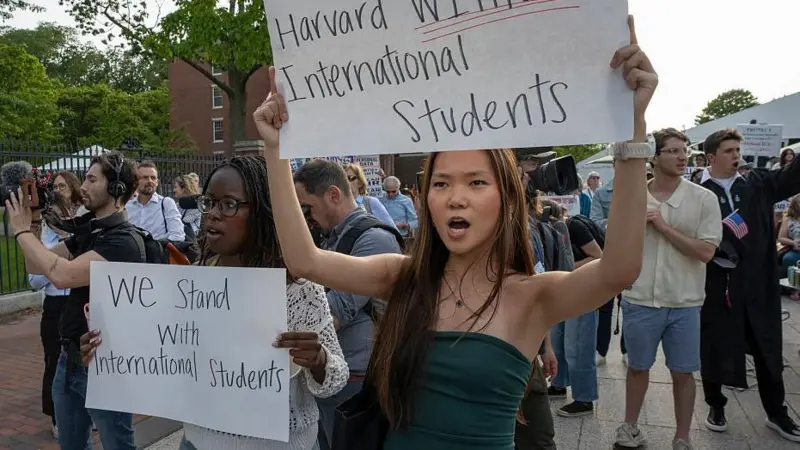In the month of May, a rather turbulent situation has unfolded among the students at Harvard University, especially among Chinese students, who are experiencing what can be described as a rollercoaster ride.
There have been a series of events at Harvard that have made the environment rather unstable for students. These events range from internal policy changes to external social and political influences. For Chinese students, these uncertainties have added extra pressure.
Some Chinese students at Harvard have expressed their concerns openly. One student said, “The situation here has become so unpredictable that I’m already looking at flight tickets, thinking about leaving.” The reasons behind their unease are multifaceted. Firstly, the tense geopolitical relations between China and the United States have cast a shadow over the study environment. Chinese students may feel that they are in a rather sensitive position, facing potential discrimination or unfair treatment.
Secondly, changes in Harvard’s own policies, such as those related to student visas and academic support, have also made students worried about their future studies. For example, stricter visa regulations may make it difficult for Chinese students to renew their visas or continue their studies smoothly.
The term “Harvard refugees” has emerged to describe this group of students who are in a state of anxiety and uncertainty. It reflects the difficult situation they are in, as if they are “refugees” seeking a more stable and secure place to pursue their education.
This situation at Harvard not only affects the individual students but also has implications for the international education exchange between China and the United States. It is a reminder that in an increasingly globalized world, educational institutions need to create a more inclusive and stable environment for international students.
